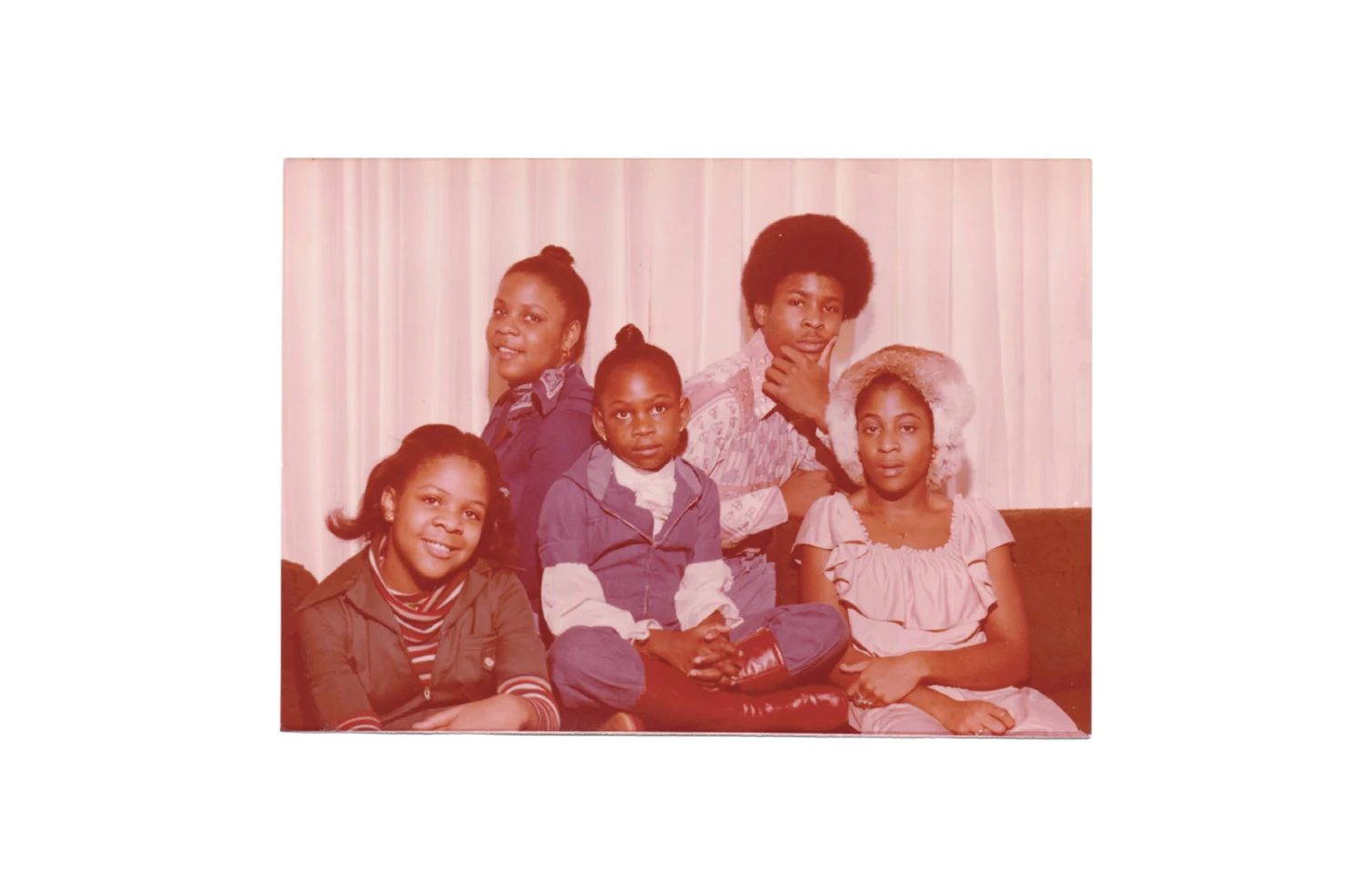how i became black
Now I want you to know, believers, that what has happened to me—this imprisonment that was meant to stop me—has actually served to advance the spread of the good news. My imprisonment has become common knowledge throughout the whole imperial guard and to everyone else. Because of my chains and seeing that I am doing well and that God is accomplishing great things, most of the brothers have renewed confidence in the Lord, and have far more courage to speak the word of God concerning salvation without fear of the consequences, seeing that God can work His good in all circumstances.
Paul’s Letter from Prison to His Friends in Philippi
I know, I know. Surely I recognize that of course I was born with this skin. Surely, I must know that I was born black. So what in the world could I possibly mean by How I Became Black?
Let’s start at the very beginning. I was born of African descent in America. I was born with dark brown skin. I wasn’t born Black. No one ever was. Nor was anyone every born White or Yellow or Red. These are inherited labels that we wear—hand-me-downs that we’ve reluctantly shuffled onto our bodies because heaven forbid that we go out into the world wearing nothing. So, we don these labels stitched into threadbare, outdated wardrobes. Like mattress tags, these aren’t labels that we can afford to rip out no matter how scratchy and uncomfortably they rest upon our necks. We must acknowledge and choose to see them—White and Black. No matter how much they tear into our flesh, we have to keep them or else we lose track of what belongs to us. And, isn’t that what labels are meant to do—tell us what belongs to whom?
When I was just beginning kindergarten in my all-white-except-for-me classroom, during recess on the playground, one day I met a friend. We were both sitting side-by-side on the swings. Both of us just sat side-by-side, gazing at each other and giggling. Her blonde hair gleamed with such light I probably imagined it was a halo. I decided she could be my friend right then and there and instantly forgave her when, gleaming beside me, she asked me, “Do you taste like chocolate?” Perhaps it was the haloed, angelic affect of the sun cascading brilliance upon her head, perhaps it was that I was just so lonely, I’m not sure. But, I ignored the wrench coiling inside my tummy. Suddenly, I’d forgotten vital truths about myself and couldn’t bring myself to give her an honest answer, “Of course not.” Instead, my throat closed. Too ashamed to speak, I shrugged. She did too, and reached for my hand and licked the back of it. Looking down at her clasped hand over my bony wrist, I brought her hand to my mouth and I too tasted, closed my eyes like I was some sort of race connoisseur and pronounced her to be, “Mmmmmmm. Delicious. Vanilla.” We were five. No one had ever told us anything about anything about how we got there. No one had ever said, this is what it is to be white or this is what it is to be black. No one had ever said. So, we tried to define ourselves, our differences, this feeling of a new thing by our own terms. Chocolate and Vanilla. Who could blame us?
I will tell you who could—Grandma.
I was a morning kindergarten kid. After a full day of Crayola, Elmer’s, and my personal favorite, fresh sheets of Manila paper, Grandma would meet me at the bus stop at the end of our driveway and we’d head home for lunch. This was a simple routine that held nothing tender, nor anything to dread. It’s just what we did. She’d wait for me and we’d go inside to have lunch—usually bologna on Wonder Bread with a plastic-thin film of Miracle Whip, two vanilla wafers and a scoop of Del Monte canned fruit cocktail. She never asked about my day or what I learned. Usually The Young and The Restless was on and back then children didn’t interrupt even conversations between adults on TV. But that day, I was filled with new knowledge and I felt that it was much more intriguing than anything Victor Newman had to say to Nicki, and so I shared, “I have a friend. She asked if I tasted like chocolate. She licked my hand and I did taste like chocolate!”
Grandma turned her face from the TV, looked me straight in the eyes to be sure that I didn’t miss what she was saying, and in a very narrow and quick gallop she said, “Listen, ain’t nobody sitting right here in this kitchen and at this table some kinda Hershey bar. We ain’t no Nestle’s Crunch. You ain’t no Hershey’s Kiss. We black. You black. There’s no chocolate here. You hear me?” I nodded. And, that was the day I was told who I was in this world. It’s how I became Black. It was the first time anyone had read out loud the label that had been irritating the skin at the nape of my neck. I never knew what to call it until then—Black.
This isn’t a tender thing but truth rarely ever is tender or easy. Grandma in a matter of seconds defined me for the rest of my days and actually, I am forever grateful.
The book of Esther is about a girl in the midst of an identity crisis. She grew up an orphaned girl, a descendent of an enslaved and exiled people, a Jew in a city that had no value for her ancestry, her parentage, her sex or her ethnicity. When a chance came for her to become someone new, she changed her name and swallowed every vital truth about herself and became the queen of a vast kingdom. But like me, she was living in a shadow cast from the light of a false halo. From outside the palace, her uncle sends word to her that her people, the Jews—not the royal court attendants, not her maids, not her King—but her real true people, are all sentenced to die. From inside the palace, she tells him that she can’t help them. Hearing this, her uncle realizes that his niece—who was like a daughter to him—had simply forgotten every vital truth about herself. He knows she’d adorned herself with a false halo in hopes of someday receiving a true crown. So with a narrow and quick gallop, he tells her who she really is. “Don’t imagine that you are safer than any other Jew just because you are in the royal palace. You’re a Jew.”
This is exactly what Grandma said to me, “Don’t imagine that you are any safer than any other Black person just because you are in a sparkling palace of white. You’re not capital C—Chocolate.” “You Black,” my Grandma said. These two words reflect an entire history in and of themselves. “You Black,” translates into “You come from a stolen people who were stripped, auctioned, bought, sold, separated from loved ones, bred like cattle, whipped, raped, lynched, shot, moved to the front lines of wars, not included in veteran homecomings or victories, passed over, pushed from the sidewalks, hosed down, removed from the lunch counters, labeled three-fifths human and yet we are still here. Don’t settle for the false halo. Wear this label—Black—with all its history, as your true crown.”
With all due respect to any well-meaning friends, my Black cannot be unseen by calling it a more palatable and acceptable flavor. Like Paul shared with his friends about his experience in jail, I want to assure you that this Black that you may believe was meant to stop me—has actually served to advance the spread of the good news. My people’s history with each and every chain, shackle, rope and whip, deeply matters to the testimony of this God we all share. Who can deny that by the grace of God we more than survived—no matter the continuing spiritual and physical death toll of so many of our men? Who can deny that He is able to accomplish great things despite the outrageous ways they continue to try to stamp and snuff us out?
My friends, you must see this color. You cannot plead the fifth and say, “I don’t see your color. I never think about your color. I don’t think of you as Black. You’re just my friend.” Though I know you mean no harm, I am not any safer in this world and our history isn’t any safer to swallow because we live with the privilege of being able to live side-by-side in well-manicured places that allow us to look away. To look at me and not see my color is such a blow to My God who made me. You must have more confidence in Him. You must have far more courage to speak the truth of His word that if He knows each hair on my head then surely He knows the cost of this Black skin. He knows what He sent His Son to save. He knows which prisoners need to be set free.
Do not continue to look at me and treat me as a darker version of yourself. But when you see me, see me as the walking miracle that I am. Millions of my people were killed and yet I am here. Centuries have tried to keep us living apart and yet we are sitting side-by-side and across the table from each other. Learn more about the truth of who I am in this Black skin and what that means to you when your own skin gleams back at you from your mirror. Do this without any dread or fear of the consequences that will surely start to scratch at the back of your neck. Don’t continue to imagine for one more second that you are any safer than I am in this history because you were always counted 100% human. Remember that I was not and because He calls us to abide as One in the Savior, that means that you weren’t fully counted as human too. We cannot be One with Him if you continue to dismiss any part of my story because its label is stitched into yours too. You cannot be White without my being Black. To not see my color is to reduce us both down to three-fifths of our story and this dishonors all the centuries of hard work Our God has done to give back the two-fifths that was taken from us.
Our history is always reminding us that boxes need to be checked:
☐ Black
☐ White
☐ Latino
☐ Asian
☐Other
We all are asked to check off our labels. Don’t get too discouraged by this. Instead, let your confidence be renewed. He has and is still accomplishing good things. Treat these boxes as vital truths, friendly reminders that tell us what belongs to whom, and exactly who we are, where we’ve been and by the mercy of His goodness, what it will take to get nearer to a united One.










